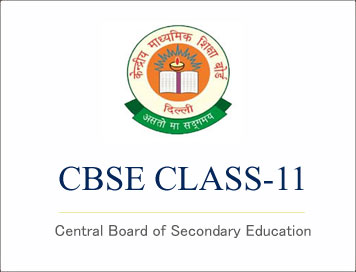CBSE PORTAL : CBSE 2017-18 Syllabus Class-11 : Physical Education | |
- CBSE 2017-18 Syllabus Class-11 : Physical Education
- CBSE 2017-18 Syllabus Class-11 : National Cadet Corps
- CBSE 2017-18 Syllabus Class-11 :Physics
| CBSE 2017-18 Syllabus Class-11 : Physical Education Posted: 30 Aug 2017 12:53 AM PDT
CBSE Class-11 Syllabus 2017-18
Subject: Physical EducationTheory Max. Marks 70 Unit-I : Changing Trends & Career In Physical Education
Unit-II : Olympic Movement
Unit-III : Physical Fitness, Wellness & Lifestyle
Unit-IV : Physical Education & Sports for Differently Abled
Unit-V : Yoga
CLICK HERE TO DOWNLOADCourtesy: CBSE |
| CBSE 2017-18 Syllabus Class-11 : National Cadet Corps Posted: 30 Aug 2017 12:38 AM PDT
CBSE Class-11 Syllabus 2017-18
Subject: National Cadet Corps1. The training curriculum of the NCC is primarily focused towards character building, inculcating leadership qualities and skill enhancement through structured academic syllabi, practical training and opportunity of exposure/interaction beyond a cadet’s immediate environment and thereby enabling them for a brighter and progressive future. 2. The Aim of NCC is as listed below: (a) To develop character, comradeship, discipline, secular outlook, spirit of adventure and the ideals of selfless service amongst the youth of the country. (b) To create a human resource of organized, trained and motivated youth, to provide leadership in all walks of life and always available for the service of the nation. (c) To provide a suitable environment to motivate the youth to take up a career in the Armed Forces. 3. Conduct of Training: The NCC training curriculum is conducted as under: (a) Institutional Training. Conducted in respective schools/ colleges by Associate NCC Officers (ANO), Permanent Instructional (PI) staff as part of the school curriculum. (b) Annual Training Camps (ATC). To provide practical outdoor training, each NCC cadet attends 10 days camp in the second year of junior and senior division. These camps are conducted by respective NCC units. (c) Centrally Organized Camps (COC). These camps are conducted at all India level, as National Integration Camps, attended by cadets from all states. (d) Adventure Training. To inculcate a spirit of adventure and team work, NCC cadets undergo various adventure activities such as para jumps, para sailing, trekking, mountaineering and sailing expeditions. (e) Attachment Camps. To give the cadets exposure to interact with Regular Army, Navy and Air Force units, attachment camps are conducted, where cadets are attached with these units. To motivate cadets to join the Armed Forces attachment of cadets with Indian Military Academy is also conducted. (f) Youth Exchange Programme (YEP). Selected cadets also get an opportunity to visit various foreign countries as part of YEP. In one year approximately100 cadets visit 10 -11 countries. (g) Social Service Activities. The cadets also undertake various social service activities, by conduct of rallies to bring awareness and participate in various relief programmes/activities whenever called for. 4. Trainers – To conduct and implement the NCC training curriculum, there are three tiers of trainers. (a) First Tier: It comprises of regular defence officers of the rank of Colour equitant rank in Air Force and Navy, Whole Time Lady Officers (WTLO) and Civilian Gliding Instructors (CGI).They are responsible for coordination and supervision of training and conduct of camps. (b) Second Tier: Professors and teachers nominated by respective schools and colleges and trained by NCC at its NCC Officers Training Academy and on completion of Pre–Commission Course, commissioned as Associated NCC Officer (ANO) form the most important link between the cadets CLICK HERE TO DOWNLOADCourtesy: CBSE
|
| CBSE 2017-18 Syllabus Class-11 :Physics Posted: 29 Aug 2017 11:59 PM PDT
CBSE Class-11 Syllabus 2017-18
Subject: PhysicsSenior Secondary stage of school education is a stage of transition from general education to discipline-based focus on curriculum. The present updated syllabus keeps in view the rigour and depth of disciplinary approach as well as the comprehension level of learners. Due care has also been taken that the syllabus is comparable to the international standards. Salient features of the syllabus include:
CLICK HERE TO DOWNLOADCourtesy: CBSE
|
| You are subscribed to email updates from CBSE PORTAL : CBSE, ICSE, NIOS, JEE-MAIN, AIPMT Students Community. To stop receiving these emails, you may unsubscribe now. | Email delivery powered by Google |
| Google Inc., 1600 Amphitheatre Parkway, Mountain View, CA 94043, United States | |
